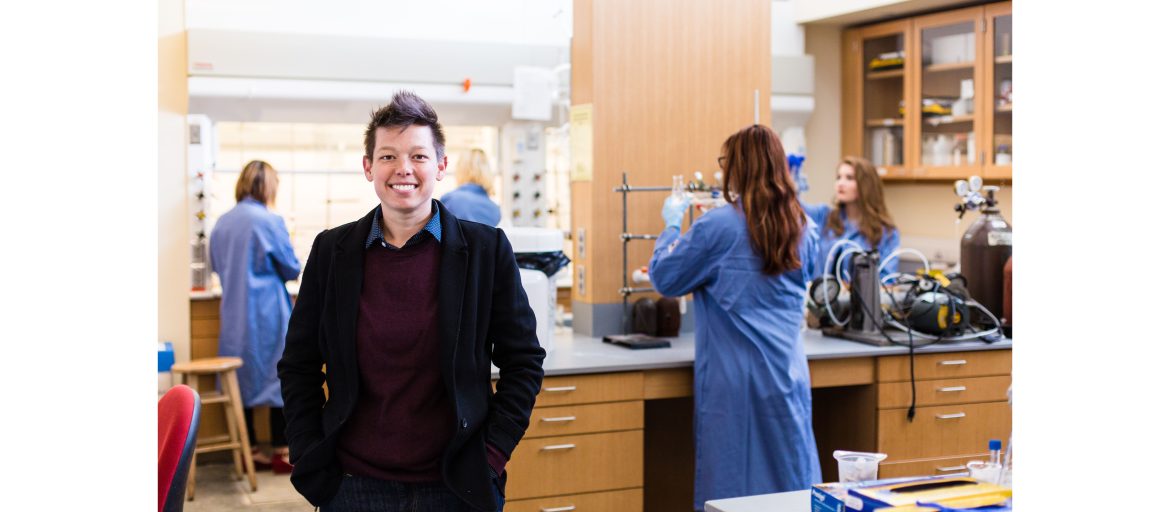Amanda Wolfe, professor of chemistry at the University of North Carolina Asheville, was one of eight recipients of the Henry Dreyfus Teacher-Scholar award for 2023, a first for her and for UNC Asheville’s Chemistry Department.
The award, bestowed by the Camille and Henry Dreyfus Foundation, honors young faculty in the chemical sciences who both hold a high standard of scholarship and show commitment to the education of undergraduates.
“This award really is about how you have excelled at both teaching and research at a predominantly undergraduate institution early in your career,” Wolfe said. “Instead of being a specific research grant for a specific topic, you’ve proven that you can do great work with students and students are having a huge benefit from working with you. So this gives an ability to really explore new areas by having something that’s unrestricted.”
Along with the award, Wolfe receives an unrestricted research grant of $75,000. Most of it, Wolfe said, will go toward paying the students who work in her lab a living wage. Because the funds are unrestricted, it does not have to go towards specific research, allowing students a chance to explore and gather preliminary data that could support future research grants.
“Everything will be to support students in their pursuit of research. Whether that’s directly paying them for their efforts to work essentially full-time in the summer or paying for them to have supplies they need because chemistry is a really high cost research field,” Wolfe said. “It’ll pay for funds for them to travel to present their work at regional and national conferences. It also provides funds to be able to get new projects going, new collaborations that can then generate more funds.”
For Wolfe, teaching and research naturally go hand-in-hand. One of her lab classes has recently published two papers with students who contributed to the research in class.
“My whole department has the mentality that research is the highest form of teaching. Getting students to actually do high-impact, cutting-edge research is the best way for them to learn all of the foundations of chemistry,” Wolfe said. “We embed research into our entire curriculum from our first semester general chemistry lab all the way up until they’ve graduated.”
Contributing to undergraduate research gives students hands-on skills and confidence in what they are learning in lectures — benefits they reap even if they don’t plan on going into lab work.
“The biggest thing students realize when they’re able to do research is that they don’t have to be A-plus students to be able to have really insightful and meaningful contributions to science,” Wolfe said. “Anybody can contribute to this work if you’re willing to have an open mind about how you approach science.”
Wolfe is the 2022-2027 GlaxoSmithKline distinguished professor in molecular and chemical biology and has received a grant from the National Institutes of Health alongside Ryan Steed, associate professor of chemistry at UNC Asheville, to develop antibiotics to treat a currently treatment-resistant form of bacteria. Most of the research in Wolfe’s lab center’s around medicinal chemistry.
“I like being able to do really foundational science, but with a very direct application to a global need.” Wolfe said. “I would be extremely proud if some of my students went on to have huge impacts in these fields because they’re so capable and so amazing and they just need the opportunity.”

Share
Permalink: